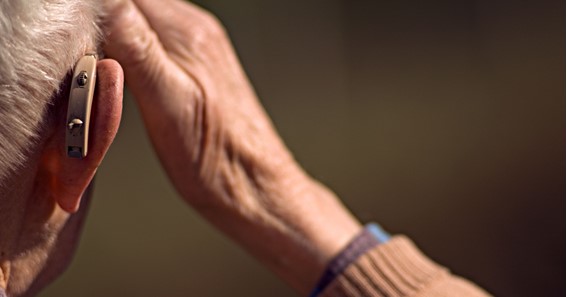Research shows that untreated hearing loss is linked to many health dangers. Some of these include dementia, depression and social isolation. Loss of hearing can ultimately make individuals withdraw from their daily activities and social circles which would ultimately put individuals who are hard of hearing to experience further loneliness. As we age, there is a general tendency to lose hearing and the best way to improve the restoration of hearing loss is by using a well-fitting hearing aid. Finding a knowledgeable audiology practice will help lead to an optimal outcome. The ENT Clinic in Singapore has a team of ear, nose and throat specialists and audiologists who can help you find the right hearing aid for you.
What is the role of a hearing aid?
Hearing aids are small electronic devices which can be worn in or behind one’s ear. These devices assist individuals to hear. The role of hearing aids is to amplify sounds which help people with loss of hearing listen to what is being communicated. Hearing aids work equally well in both noisy and quiet areas.
A hearing aid is made up of the 3 main components which are a microphone, speaker and amplifier. The sounds received through the microphone are converted to electrical impulses which are amplified. The amplifier enhances the strength of these signals, sending them to the ear via a speaker.
click here – Top 5 Human Resources Functions to Automate for Business Efficiency
When do you need hearing aids?
Hearing aids are needed when one is short of hearing. Some of the signs to look out for include:
- Facing difficulties in understanding what the others are talking
- Asking friends to repeat what is being told
- Being unable to hear properly in crowded areas due to background sounds
- Having the perception that people are mumbling and not speaking coherently
- Inability to listen to the radio or television at a low volume
- Ringing in the ears
- Withdrawing from social situations to avoid talking
What are the possible causes of loss of hearing?
Loss of hearing can happen due to many reasons and determining the cause is equally important to help with the treatment. Visiting a qualified ENT doctor can help in determining the reason for the loss of hearing.
- Age related hearing loss seen in people over 60 years of age
- Frequent exposure to loud sounds, like heavy equipment
- Genetic predisposition with siblings or close relatives with disorders related to hearing loss
- Diabetes and cardiac disease
- Use of ototoxic medications
- Head injury and trauma
- Autoimmune diseases or illnesses like Meniere’s disease
- Tumors in the ear
Best way to identify a loss of hearing?
It is important to seek an ENT evaluation from a reputed practice, in case you suspect that you have a hearing loss. The testing involves clinical examination and conducting a thorough medical history review. Tests are painless and non-invasive and can help to identify the specific parts of the auditory system in disorder. Most of the tests occur in a sound-treated room which is quiet. One may be asked to wear an audiometer.
Some of the common tests done before recommending a hearing aid includes:
Pure Tone Audiometry: This includes listening to tones at various volumes and pitches in a sound treated room. The audiologist will offer instructions through the headphone and the tester has to focus well and respond to the sounds being heard.
Speech Audiometry: This test uses recorded or live speech in a quiet setting to check if the person can evaluate the softest speech sounds and understand what is being told. You will be told to repeat words which have been presented above the threshold. Then you will be observed to see how well it is understood accurately.
Tympanometry: In this test, a soft plug which builds pressure variations generating sounds will be placed in the ear. It will help the doctor to see the movement of the eardrum and measure the reflective responses of middle ear muscles.
Hidden hearing loss is when ‘pure-tone’ hearing tests cannot conclude on signs of hearing loss. An audiologist can rule out hidden hearing loss by testing using otoscopy, auditory brainstem response testing, extended high frequency audiometry and air and speech reception testing.
How to choose the appropriate hearing aid?
When choosing the hearing aid, it is best to follow the recommendations laid by the audiologist. These recommendations are drawn based on the hearing assessment results, testing for balance and other necessary ENT assessments, after understanding the cause for the hearing issue.
The audiologist will discuss with you the different types of hearing devices which are present. It is important to choose a hearing aid which is suitable for one’s lifestyle, budget and communication needs. While there are different hearing aid options, it may not be the one which suits everyone. Based on the severity of the hearing loss, there may be other corrective treatments needed.
If hearing aids is what is recommended, then the audiologist would ensure that it fits the ears properly and the hearing aid is programmed according to an individual’s listening needs.
click here – Creative Ways To Teach Online
What options do I have when considering hearing aids?
Today, hearing aids come in different colours and sizes. The hearing aids can be recharged or used with batteries. Hearing aids could also be present as basic to more advanced devices. Cosmetically appealing hearing aids, fit inside the ear canal, so that it is not visible to the outside. With microchip technology and enhanced signal processing capabilities, the sound quality of hearing aids has greatly improved. Today smartphones act as a remote control for these hearing aids.

